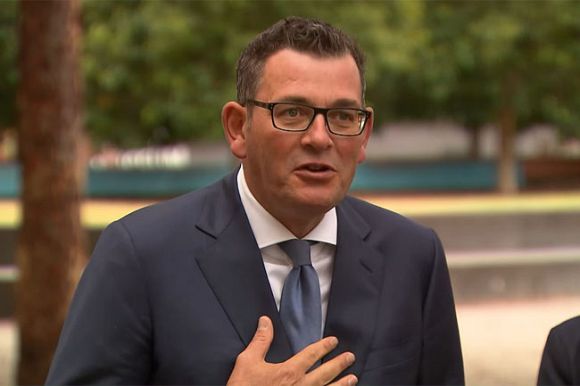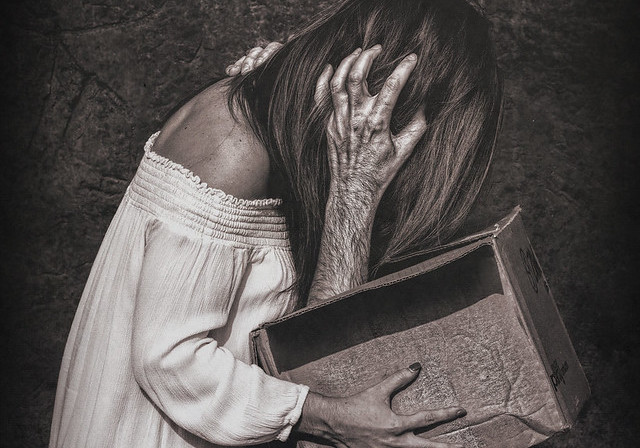Two hundred and twenty-eight recommendations. That was the result of four years of hearings, submissions and reports from the Royal Commission into Violence, Abuse, Neglect, and Exploitation of People with Disabilities.
Given disabled people are part of, and segregated from, virtually all areas of Australian life, this inquiry was always going to be big.
For some, these recommendations reflect the opportunity to reshape a more inclusive community with and for disabled people. For others, the recommendations are underwhelming and delay the opportunity to end segregation within their lifetime.
If you have lived experience of mental health issues or a psychosocial disability – as both authors do – the recommendations were even more disappointing. In fact, people with psychosocial disability, have been left largely out of the Royal Commission’s report and recommendations.
Some recommendations may be of use to people with psychosocial disabilities, such as the creation of a disability rights act, amendments to the Disability Discrimination Act, or the creation of a specialist mental health service for people with cognitive impairments. However, this law reform doesn’t specifically focus on people with psychosocial disabilities and therefore, risks overlooking them again. While a specialist mental health service for people with cognitive impairment may be of value, we hold concerns that this could result in new forms of segregation.
Mental health reform in Australia is as urgently needed as it is difficult. Our federated system of government has so often led to buck-passing amongst governments and a lack of collective momentum. Sadly, the Royal Commission has not done much to change this.
It is unsurprising, however, given a hearing on psychosocial disability has not been held. This is despite profound issues impacting people with psychosocial disabilities, including violence, abuse, neglect and exploitation of people in mental health settings.
For instance, our mental health laws in each state and territory permit compulsory treatment and restrictive practices. These laws exist despite their incompatibility with Australia’s international human rights duties under the Convention on the Rights of People with Disabilities (CRPD).
Earlier this year, when reaching out for help, as we’re often told to do, author Nicole experienced such violence. I went to my local hospital as I was seriously unwell due to having an eating disorder. Whilst I needed lifesaving care, the responses ranged from dismissing the severity of my health and mental health situation to a complete violation of my human rights. Treatment was administered involuntarily and restraints were used — this is often routine rather than used as a last resort.
We’re restrained to beds, forcibly sedated and confined to a single room in health and mental wards, 24 hours a day, under one-to-one surveillance for an undefined period. My rights under the CRPD will never be fully upheld whilst we allow punitive mental health laws and carceral psychiatric systems to hold such power over our freedom and choices.
Neglect continues, too, as people with psychosocial disabilities are not provided with the community-based, voluntary and peer support that they call for and crave. Neglect and psychotropic medications are part of why people who use mental health services can die, on average, up to 30 years younger than the general population.
Exploitation is another feature of people’s lives in distress. Long-stay psychiatric units continue despite a belief that mental health sufferers were deinstitutionalised decades ago. Compounding this sense of exploitation, people are often forced to pay a vast majority of their income for the privilege of their detention.
The reforms from this Royal Commission don’t acknowledge or address these issues. It is a dichotomy facing people with psychosocial disabilities: they are locked inside wards and outside of reform. It is psychosocial segregation in action.
Some may point to recommendations, such as reforming guardianship and administration laws that disproportionately impact people with psychosocial disabilities. However, it’s unclear how these reforms move us forward from work already underway or completed.
Others will point to reforms to limit the use of restrictive practices like seclusion and restraint. For the author who has experienced this violence, this recommendation is hard reading: the law reform proposed merely restates existing mental health laws. In fact, it is a step more conservative than the Victorian Government's position, which is planning to fully eliminate these practices.
While there are few reasons to celebrate, there are solutions. Outstanding is an offer to Australian governments to undertake restorative justice processes to enable healing from harm from mental health systems. This is crucial to move the violence, abuse, neglect and exploitation of people with psychosocial disabilities, as well as the lived expertise of these individuals and communities, from the margins to the centre of national and community conversations.
Establishing a national consumer peak body to represent people with lived experience is a positive development. A priority for that body should be to hold governments accountable for federal reform to mental health laws to bring them in line with human rights. This advocacy will be strengthened if mental health lived experience and disability communities come together when talking to the government.
Thankfully, we don’t need a royal commission to come up with all of the answers to these challenges: people with lived experience and their representative organisations have been offering solutions for decades. The solutions are there. We seek the political will.
Nicole Lee is chair of People with Disability Australia and has lived experience of trauma and distress, and compulsory treatment. Simon Katterl is a mental health advocate with lived experience of trauma and distress.
 This work is licensed under a Creative Commons Attribution-NonCommercial-NoDerivs 3.0 Australia License
This work is licensed under a Creative Commons Attribution-NonCommercial-NoDerivs 3.0 Australia License
Support independent journalism Subscribe to IA.












